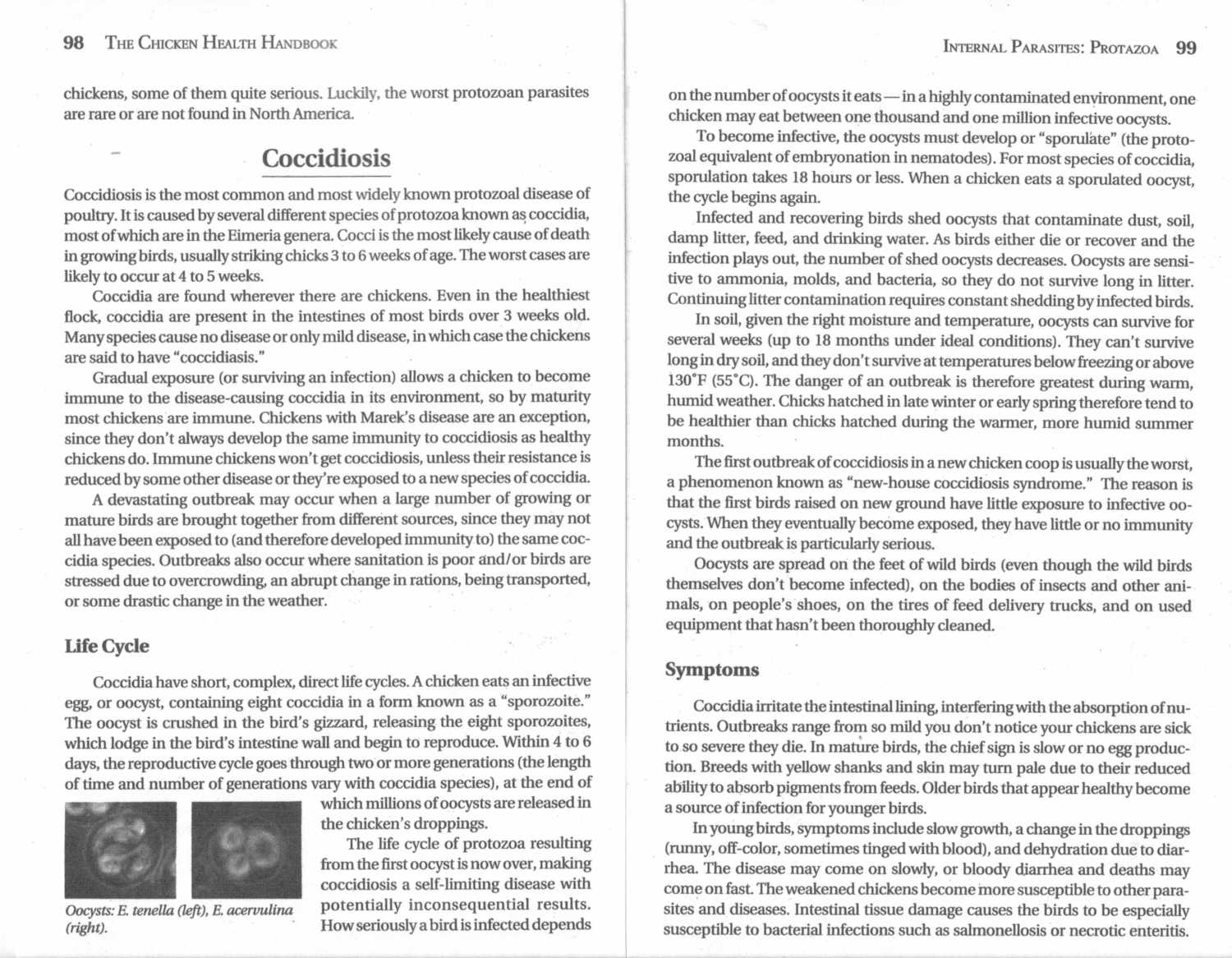There are no guarantees about much of anything in life.
Nevertheless if you keep your brooder bedding dry, relatively clean, and the water clean and fresh along with a medicated chick starter you have a very good chance of your chicks never contracting coccidiosis. Now once you put them on the dirt outside things may change depending on whether your ground is "fowl sick" or not. Some areas have such a high level of fowl specific coccidiosis in the soil that your birds will be at risk no matter what you do. Better to avoid those areas if you can. I do not run my grow-out pens in the same areas as my layer and breeder tractors for that very reason.
Your mother hen can eat medicated chick starter right along with her chicks. It won't hurt her at all. I've known people that fed medicated chick starter to their birds their entire lives and they thrived. It's not what I would do myself, but I've seen it done.
Keep your brooder DRY, relatively clean, the water clean and fresh, and feed a medicated chick starter and you'll have done as much as you can.
Nevertheless if you keep your brooder bedding dry, relatively clean, and the water clean and fresh along with a medicated chick starter you have a very good chance of your chicks never contracting coccidiosis. Now once you put them on the dirt outside things may change depending on whether your ground is "fowl sick" or not. Some areas have such a high level of fowl specific coccidiosis in the soil that your birds will be at risk no matter what you do. Better to avoid those areas if you can. I do not run my grow-out pens in the same areas as my layer and breeder tractors for that very reason.
Your mother hen can eat medicated chick starter right along with her chicks. It won't hurt her at all. I've known people that fed medicated chick starter to their birds their entire lives and they thrived. It's not what I would do myself, but I've seen it done.
Keep your brooder DRY, relatively clean, the water clean and fresh, and feed a medicated chick starter and you'll have done as much as you can.




